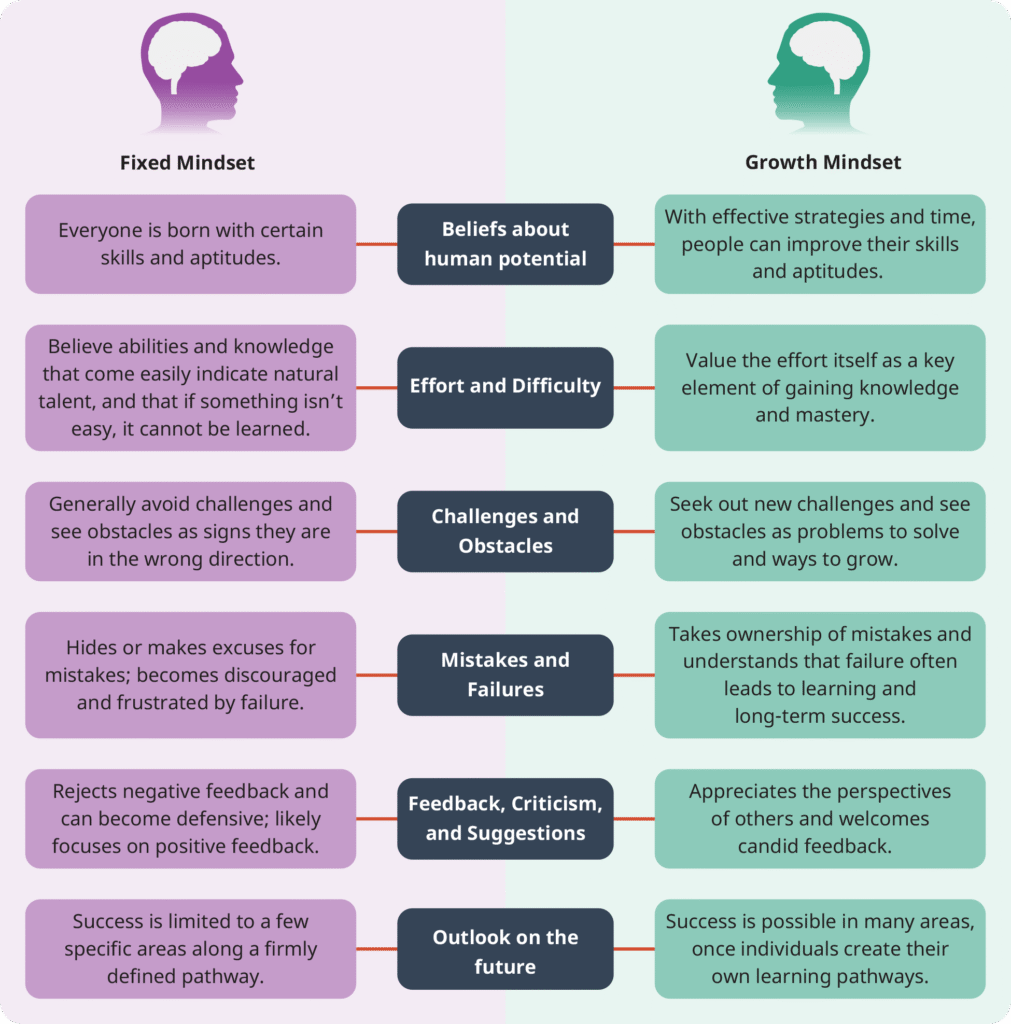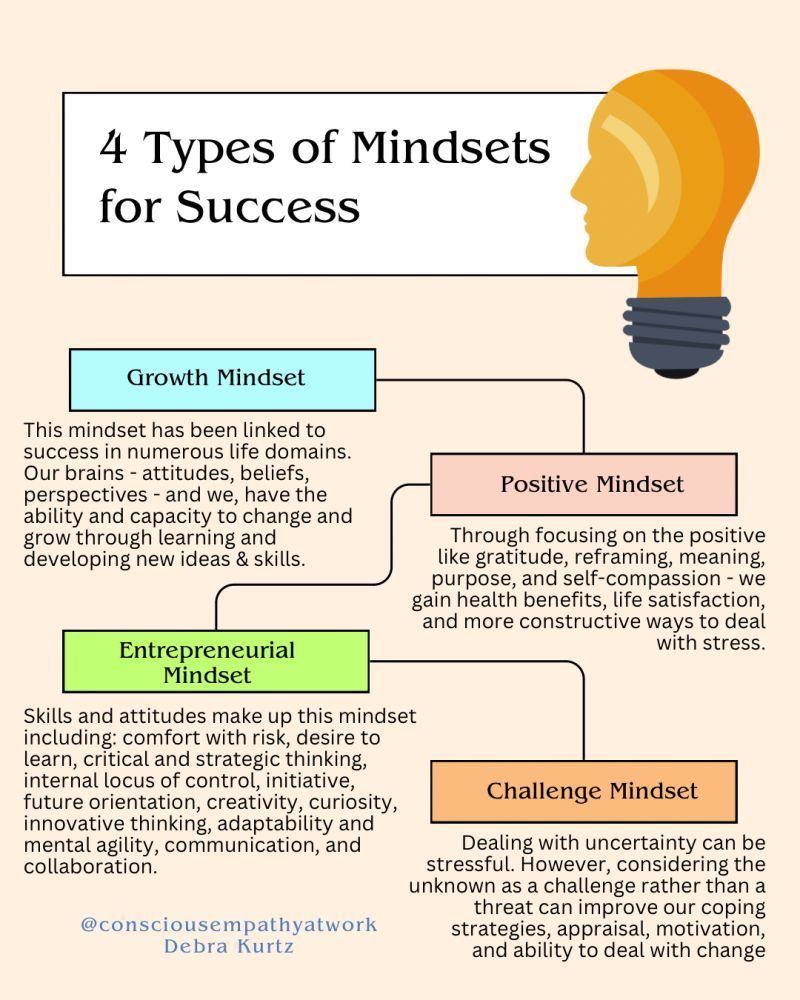Success Begins in the Mind: The Power of Pre-Exam Preparation
Picture this: two students walk into the exam hall. One is calm, composed, and focused — the other is restless, second-guessing every answer before the paper has even begun.
Interestingly, both studied the same syllabus, attended the same classes, and put in similar hours. So what’s the difference? It’s not what they knew — it’s how they showed up mentally. The truth is, academic performance is not just about what you’ve memorized the night before. It’s about what’s going on in your mind before the first question even appears.
Research shows that a student’s mindset plays a critical role in shaping their academic outcomes — often more than IQ or rote learning. According to a report by the American Psychological Association (APA), high levels of stress and anxiety around exams are directly linked to poor performance, even among well-prepared students. This highlights the silent weight that mindset carries, influencing memory recall, attention span, and problem-solving speed.
In fact, renowned psychologist Carol Dweck coined the term “growth mindset,” which refers to the belief that intelligence and ability can be developed through effort and strategy. Students who adopt this outlook tend to bounce back from setbacks and tackle challenges with greater resilience. In contrast, a fixed mindset — the belief that you’re either smart or not — often leads to self-sabotage under pressure.
In today’s hyper-competitive academic landscape, where test scores can shape career paths, cultivating a strong exam mindset is no longer optional — it’s essential. From visualization techniques to strategic study habits, building this mental foundation isn’t just about reducing exam fear — it’s about unlocking your highest potential. Before the first page is turned, success has already begun — quietly, confidently, in the mind.
What Is the ‘Exam Mindset’?
Most students prepare for exams by revising textbooks, solving past papers, and pulling late-night study marathons. While these are essential steps, they often overlook the one factor that can make or break performance: their mindset.
The exam mindset isn’t just about motivation or positivity — it’s a cultivated mental framework that prepares you to handle pressure, process information effectively, and stay calm under stress. It is a combination of emotional regulation, cognitive focus, and strategic self-belief that allows you to perform at your best when it matters most.
At the heart of this concept is the idea that your approach to exams is shaped less by what you know and more by what you believe about yourself and your ability to grow. This is where Dr. Carol Dweck’s work on the growth vs. fixed mindset becomes essential.
A student with a growth mindset believes intelligence can be developed through effort, strategy, and help from others. They see failure as feedback — not a verdict on their worth. In contrast, students with a fixed mindset view challenges as threats and believe that talent alone determines success. Unsurprisingly, these beliefs heavily influence academic outcomes and resilience.
In a research article published in Educational Psychology, students who demonstrated higher levels of a growth mindset also reported better academic performance, greater motivation, and lower stress during exams. These findings emphasize that the right mindset doesn’t just protect you from burnout — it actively enhances how well you learn and retain information.
Additionally, having a healthy exam mindset trains your brain to stay focused, ignore distractions, and manage time more effectively. It promotes executive functioning — your brain’s ability to plan, concentrate, and regulate emotions — which is crucial during high-stakes testing environments. As noted by Harvard’s Center on the Developing Child, executive function skills are directly linked to academic success, especially when under time pressure.
So, what is the exam mindset? It’s not a last-minute panic mode or a surge of motivation the night before. It’s a quiet, daily conditioning of the mind — rooted in self-awareness, belief, and strategy — that prepares you for success long before the paper is placed on your desk.
What’s Holding You Back Before the Exam Even Starts?
Before a single question is answered, many students are already battling a storm of internal obstacles. Despite hours of study, their minds are cluttered with doubt, fear, and anxiety — invisible forces that undermine performance in ways most never realize. These psychological barriers are more than just nerves; they’re deeply rooted in our perception of ability, past experiences, and personal expectations.
One of the most common barriers is test anxiety, a condition that affects millions of students worldwide. It manifests as physical symptoms like a racing heart, nausea, or trembling, and mental blocks like memory lapses or inability to focus.
According to the American Test Anxieties Association, up to 40% of students experience high test anxiety, which can significantly impact academic performance, even among well-prepared individuals. This anxiety often creates a feedback loop — the more worried you are about failing, the more likely you are to underperform.
Closely linked to this is imposter syndrome, a psychological pattern where individuals doubt their own competence and feel like a fraud, even when there’s ample evidence of their capability. A report from the International Journal of Educational Psychology found that students suffering from imposter feelings are more likely to procrastinate, avoid seeking help, and internalize failure. This mindset can be particularly damaging during exams, where self-belief and confidence are critical.
Another powerful internal barrier is the fear of failure, which often stems from a high-pressure environment — be it academic, familial, or personal. This fear can lead to perfectionism, where students are so afraid of making mistakes that they avoid starting altogether. As explained by Psychology Today, perfectionism is a double-edged sword: while it may motivate some, it paralyzes others and increases stress, burnout, and eventual disengagement from studies.
And then there’s procrastination, often misunderstood as laziness. In reality, it’s a self-protection mechanism. Students delay studying not because they don’t care, but because they’re anxious about underperforming or not understanding the material.
According to a study published in Frontiers in Psychology, procrastination is heavily influenced by emotional regulation — students often use short-term mood repair (like scrolling on their phone) to avoid the discomfort of preparing.
Together, these psychological blocks form an invisible wall between students and their potential. They’re rarely addressed in classrooms, but they impact performance just as much as — if not more than — content knowledge. Recognizing and addressing these barriers is the first step in developing a strong, resilient exam mindset.

This infographic contrasts a Fixed Mindset with a Growth Mindset, emphasizing how beliefs about effort, challenges, and failure shape learning outcomes. Adopting a growth mindset before the exam fosters resilience, adaptability, and long-term success—long before the first question is attempted.
Training Your Brain for Exam Success
Building the right exam mindset isn’t about wishful thinking — it’s about deliberate, science-backed strategies that prepare your brain to perform under pressure. Just like athletes train their bodies, students can train their minds through techniques that boost focus, reduce anxiety, and foster confidence.
One powerful tool is visualization or mental rehearsal. This technique involves vividly imagining yourself successfully completing the exam—feeling calm, confident, and in control. Visualization helps create a mental blueprint that your brain can follow when the real test arrives, making unfamiliar or stressful situations feel more manageable.
Equally important is goal-setting. Breaking down your exam preparation into clear, achievable goals keeps you motivated and organized.
Research by Locke and Latham highlights that specific, challenging goals lead to better performance than vague intentions. For example, instead of saying “I will study history,” set a goal like “I will complete two chapters and summarize key points by Friday.” This approach turns overwhelming tasks into manageable steps and reduces procrastination.
Another mindset shift is reframing failure as feedback rather than a final verdict on your ability. Mistakes during practice tests or study sessions are opportunities to learn and improve. Students who adopt this perspective tend to maintain motivation and bounce back faster from setbacks, which is crucial in high-stress exam environments.
Your self-talk — the internal dialogue you have with yourself — plays a pivotal role in shaping your mindset. Positive affirmations like “I am prepared” or “I can handle this” can reduce anxiety and enhance performance. According to the Journal of Personality and Social Psychology, individuals who practice positive self-talk show improved concentration and stress management during challenging tasks.
Finally, don’t underestimate the role of physical well-being in mental clarity. Studies from the National Sleep Foundation reveal that adequate sleep before exams significantly improves memory retention and cognitive function. Similarly, balanced nutrition and regular exercise support brain health and emotional regulation, reinforcing a calm and focused mindset.
Incorporating these practices into your daily routine creates a foundation of mental resilience and readiness — a mindset where success starts well before you put pen to paper.
Success is a System, Not a Stroke of Luck
When it comes to exams, success rarely happens by chance or last-minute effort. Instead, it’s the product of consistent habits and well-designed systems that shape your mindset and learning over time. As author James Clear explains in his bestselling book Atomic Habits, focusing on small, daily improvements creates remarkable long-term results.
Developing a study routine is foundational to building an effective exam mindset. This means setting regular, distraction-free time blocks for studying each subject, rather than cramming sporadically. According to a study in the Journal of Educational Psychology, students who follow structured study schedules exhibit better retention and less stress.Over time, these routines become automatic, reducing procrastination and mental fatigue.
Another key system is practicing mock exams under timed conditions. Simulating real test environments helps students acclimate to time pressure and exam format, which reduces anxiety on the actual day. The Association for Psychological Science highlights that practice testing not only boosts knowledge recall but also improves confidence. Repeated exposure builds familiarity, making exams feel less intimidating.
Maintaining a review and reflection journal is an often-overlooked habit that supports mindset growth. After each study session or mock exam, jot down what worked, what was challenging, and areas to improve. This habit turns mistakes into meaningful learning experiences rather than sources of discouragement.
Importantly, systems help shift reliance from willpower to automatic behavior. Willpower is a limited resource that fluctuates daily, but habits and routines conserve mental energy by making productive actions habitual. As James Clear explains, “You do not rise to the level of your goals. You fall to the level of your systems”.
In sum, building success as a system means prioritizing consistency over intensity. It’s the daily, intentional actions—no matter how small—that prepare your brain and body to perform optimally when exam day arrives. This systemic approach strengthens your exam mindset by reducing anxiety, improving focus, and boosting confidence, long before you even touch the paper.
Practical Steps to Build Your Exam Mindset Today
Developing a strong exam mindset doesn’t happen overnight, but you can start taking concrete steps right now to shift your mental approach. These actionable strategies combine psychological insights with proven techniques that anyone can adopt.
First, practice mindfulness and meditation to reduce exam-related stress and improve focus. Mindfulness helps you stay present, preventing your mind from spiraling into worries about the future or ruminations on past failures. A study published in Mindfulness journal found that students who engaged in mindfulness exercises showed lower anxiety levels and better cognitive control during exams.
Next, create a personalized study plan that breaks your syllabus into manageable chunks, prioritizing difficult topics earlier. Using digital tools such as Notion or Trello can help you organize and track your progress efficiently. Research from the University of Minnesota emphasizes that planning ahead significantly reduces procrastination and improves motivation.
Incorporate active recall and spaced repetition into your study routine to maximize retention. Instead of passively rereading notes, actively test yourself on the material. Platforms like Anki or Quizlet use spaced repetition algorithms, which have been scientifically proven to enhance long-term memory retention, as shown in a study by the Psychological Science journal.
Don’t neglect your physical health—regular exercise has been linked to improved brain function, memory, and mood. A comprehensive review by the British Journal of Sports Medicine highlights that aerobic exercise increases hippocampal volume and neuroplasticity, key for learning and memory.Even a daily 20-minute walk or yoga session can significantly boost your cognitive performance.
Finally, seek social support and accountability. Studying with peers or joining study groups can provide motivation and reduce feelings of isolation. Sharing your goals and progress with friends or family encourages commitment and helps you stay on track.
By implementing these practical steps, you’re actively training your brain and body to handle exam challenges confidently and calmly. Success truly begins the moment you decide to invest in your mindset.

This infographic highlights four powerful mindsets—Growth, Positive, Entrepreneurial, and Challenge—that contribute to long-term success. Cultivating these mindsets before an exam builds emotional resilience, strategic focus, and the confidence needed to perform under pressure.
The Exam Mindset is Your Greatest Exam Strategy
Success in exams isn’t just about knowledge or last-minute cramming — it begins long before you open the question paper. Developing the right exam mindset is a transformative process that combines self-awareness, emotional regulation, strategic habits, and resilience. As research consistently shows, students who invest time in cultivating a positive, growth-oriented mindset not only perform better but also experience less anxiety and greater satisfaction with their learning journey.
The science behind mindset reveals that intelligence and ability are not fixed traits but can be developed through effort and effective strategies. This aligns with the groundbreaking work of Carol Dweck and others on growth mindset theory, which encourages viewing challenges as opportunities rather than threats. When you adopt this outlook, failure becomes a stepping stone, not a stumbling block.
Moreover, practical techniques such as mindfulness, goal-setting, visualization, and structured study routines empower you to manage stress and sharpen focus — two crucial components for exam success. According to the American Psychological Association, managing stress through these methods significantly improves cognitive function and memory recall during high-pressure situations.
Ultimately, the exam mindset is a holistic approach that integrates mental preparation with physical well-being and social support. It is a system of habits and beliefs that support you before, during, and after the exam. By embracing this mindset today, you lay the foundation not only for academic success but for lifelong learning and personal growth.
Remember, success starts in the mind — long before you even touch the paper.
Frequently Asked Questions About The Exam Mindset: Why Success Starts Before You Even Touch the Paper
What exactly is the exam mindset?
The exam mindset is a mental framework that helps students prepare emotionally and cognitively to perform well during exams. It involves focus, confidence, and stress management.
How does mindset affect exam performance?
Mindset influences motivation, resilience, and how students cope with pressure, directly impacting their ability to recall information and think clearly during exams.
What is the difference between a growth mindset and a fixed mindset?
A growth mindset believes abilities can be developed through effort, while a fixed mindset assumes intelligence and talent are static traits.
Can anxiety before exams be controlled?
Yes, anxiety can be managed with techniques such as mindfulness, breathing exercises, and proper preparation.
What are some common psychological barriers students face before exams?
Test anxiety, imposter syndrome, fear of failure, perfectionism, and procrastination are common barriers.
How can visualization improve exam results?
Visualization helps mentally rehearse success, reducing stress and improving confidence and focus during the exam.
Why is goal-setting important in exam preparation?
Setting specific and achievable goals breaks down study tasks into manageable steps, improving motivation and reducing procrastination.
What role does self-talk play in exams?
Positive self-talk can boost confidence, reduce anxiety, and enhance concentration during exams.
How does physical health impact exam success?
Adequate sleep, nutrition, and exercise improve brain function, memory, and emotional regulation, which are crucial for exam performance.
What are some effective study habits to build a strong exam mindset?
Consistent study routines, active recall, spaced repetition, mock tests, and reflection journals are effective habits.
How does procrastination affect exam preparation?
Procrastination delays studying, increases stress, and reduces the time available to learn and revise material.
Can social support improve exam mindset?
Yes, studying with peers or sharing goals with friends and family provides motivation and emotional support.
What is the connection between mindfulness and exam stress?
Mindfulness helps students stay present and calm, reducing anxiety and improving focus during exam preparation and tests.
How important is practice testing before exams?
Practice testing under timed conditions improves recall, familiarity with the exam format, and confidence.
Are mistakes during preparation harmful?
No, mistakes are valuable learning opportunities that help identify weak areas and improve understanding.
How can I develop better time management for exams?
Creating structured study schedules, prioritizing topics, and using digital tools can enhance time management skills.
What should I do if I feel overwhelmed before exams?
Taking breaks, practicing relaxation techniques, and seeking social or professional support can help manage overwhelm.
Is it better to study alone or in groups?
Both have benefits; studying alone helps focus, while groups provide motivation and diverse perspectives.
How does a system-focused approach differ from goal-focused studying?
Systems emphasize consistent habits and routines, whereas goals are specific outcomes. Systems create sustainable success beyond just achieving goals.
Can mindset training help in subjects I find difficult?
Absolutely. A positive mindset encourages persistence and reduces fear, helping you tackle challenging subjects more effectively.
-Authored By Pragna Chakraborty





